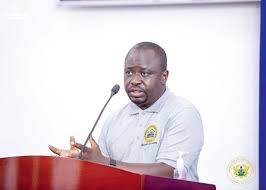The report by the Ghana Statistical Service (GSS) says that one out of every four Ghanaians have no or limited access to healthcare, education, employment and also live in poor conditions.
According to the GSS, this means 24.3 per cent of Ghanaians (over 7.31 million people) experience multidimensional poverty, facing deprivations in healthcare, education, employment and living conditions.
The report added that unemployment contributes the most to Multidimensional Poverty Index (MPI) at 32.6 per cent, followed by poor living conditions (27.9%), poor access to health care (21.7%), and the lack of education (17.8%).
“Nearly half (43.8%) of those in multidimensional poverty experience severe poverty. Multidimensional Poverty Index (MPI) means an individual faces many overlapping deprivations at the same time,” the report published by the Daily Graphic on Friday said.
The newspaper quoted the Director of Social Statistics at the GSS, Omar Seidu, as stressing at a workshop in Accra on Wednesday of the need for a comprehensive approach to address poverty in Ghana, including improving access to quality education, health care, and employment opportunities, particularly in rural and underserved regions.
According to the report, Seidu harped on the need to use the findings to inform policy decisions and address poverty simultaneously across various dimensions.
He also explained that the MPI is a non-monetary measure of poverty that reflected the various areas in which the population may be deprived.
“The index was generated using 13 weighted need indicators classified under four dimensions – “living conditions, education, health and employment”.
“It revealed that unemployment recorded the highest contribution to MPI with 32.6 per cent. Furthermore, 27.9 per cent of the people experienced poor living conditions which cut across the lack of access to potable water, electricity, improved toilet and assets, living in old dilapidated homes, overcrowding in rooms as well as non-usage of liquefied petroleum gas as its indicators,” the report added.
GIK/APA
7.3m Ghanaians are poor, unemployed, have no access to education, health – Report

Previous ArticleAfreximbank, BDEAC sign MoU on strengthening their cooperation

